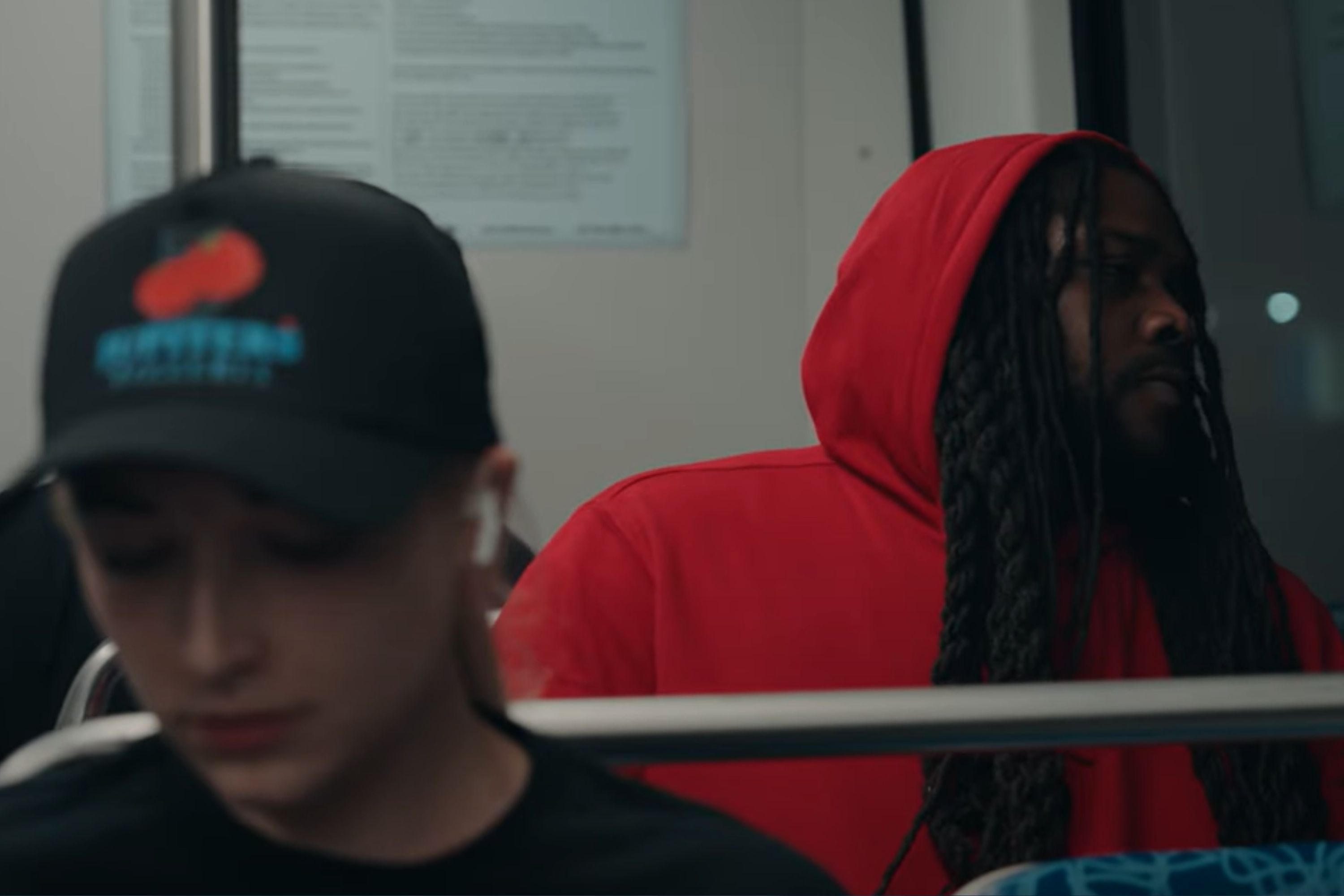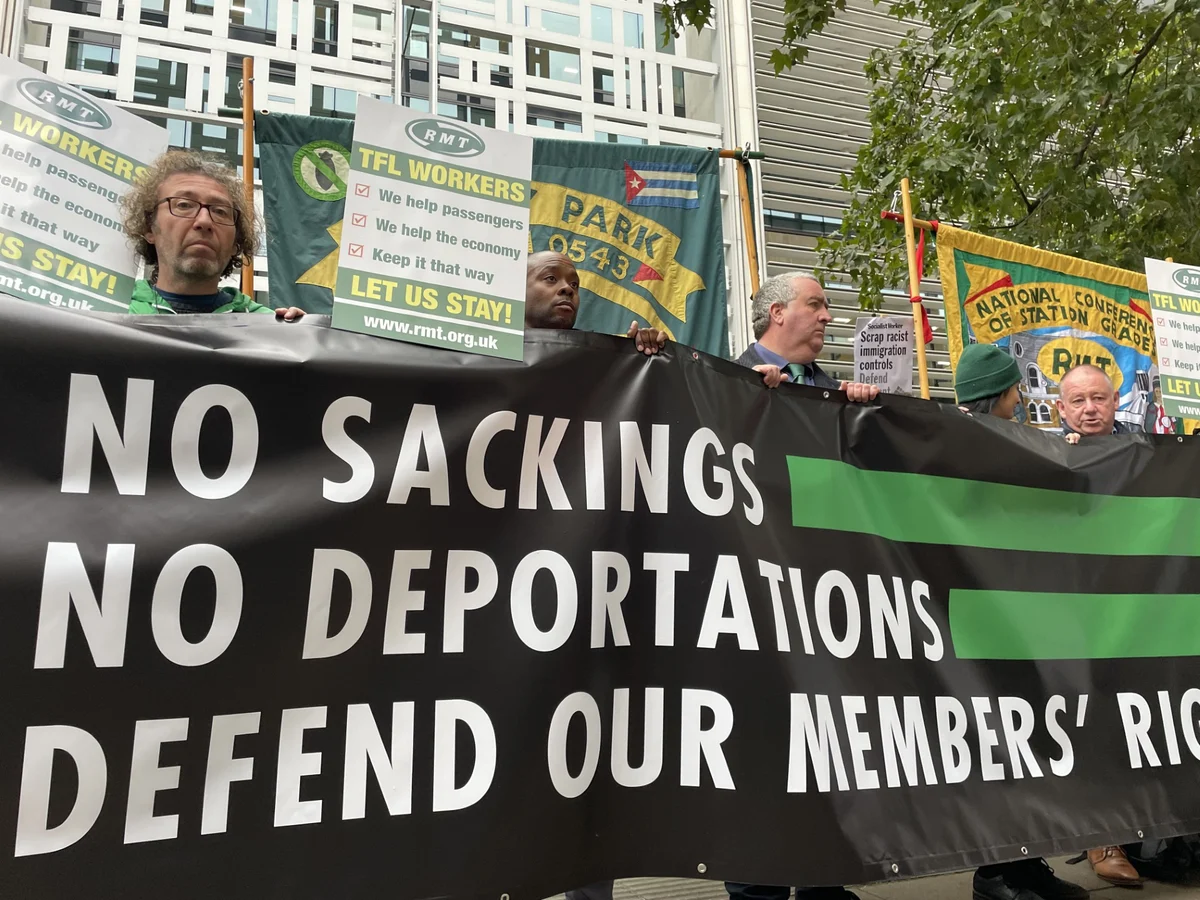
A rapper boards a train in his hometown, looks across the aisle, and watches a tragedy unfold — then rewrites the ending.
In “Save Me,” Charlotte-born rapper DaBaby reenacts the fatal stabbing of Iryna Zarutska, a 23-year-old Ukrainian refugee killed on the city’s LYNX Blue Line in August whose murder became a flashpoint in the national conversation about urban crime and race relations.
But in DaBaby’s video, Zarutska doesn’t die.
The video, released Tuesday, was filmed on the same light rail line where Zarutska was killed. It opens with local news footage, showing surveillance video of Zarutska and her attacker, Decarlos Brown Jr. The scene then transitions to dramatized reenactments, with actors portraying the moments on the train. This time, DaBaby sits nearby, watching in silence before stepping in to stop the attack and hand the assailant over to police.
Eventually, he turns to the camera and says: “It’s just some people, man. Unfortunately, we can’t save ’em. I might be one of them.”
DaBaby didn’t have permission to film on the train. The Charlotte Area Transit System confirmed that security officers escorted him and the crew off the vehicle after a rider reported the video shoot. “CATS was not involved in this filming, nor did we grant permission,” a spokesperson told Newsweek.
While the song doesn’t directly reference Zarutska’s killing, it uses the imagery of salvation and responsibility to frame a larger message that is both political and, in some ways, anti-political. Lines like “Think you can save me like you God or somethin'” and “When I stay silent in my morals, yeah, it cost me plenty” hint at DaBaby — who shot and killed man in a North Carolina Walmart in 2018 in an altercation that was ruled self-defense — grappling with past decisions and public expectations.
It’s also one of the first major responses to the killing from a prominent Black artist. Zarutska’s death — the brutal stabbing of a white Ukrainian refugee by a Black man with a long criminal history — has been seized on by right-wing commentators and conservative media figures, who have cited the case as evidence of racial double standards and rising urban crime.
After the video’s release, some conservatives accused major news outlets of ignoring the story because the suspect was a Black man and the victim a white woman. They pointed to cases like George Floyd’s murder in 2020 and the Daniel Penny subway case in 2023, which received national coverage, while Zarutska’s case only gained attention after the video of the killing spread on social media.
Others push back on this claim, arguing that focusing on interracial crime numbers gives a distorted picture. They note that social media often highlights rare but shocking incidents, fueling racial narratives while overshadowing broader issues like poverty, segregation, and lack of mental health care.
Instead of adding to the outrage, DaBaby’s video takes a different approach.
DaBaby has long emphasized his Charlotte roots — he grew up in the city, graduated from Vance High School, and often films there. He has also spoken openly about mental health, particularly after his brother’s death in 2020. While controversy has often followed him, this time the response has been notably unified.
Still, in today’s politically charged climate, where debates over race, immigration, and violent crime dominate, some conservative commentators on X tried to frame DaBaby’s new video as sparking backlash. The approach echoed the reaction to American Eagle’s Sydney Sweeney ad, where Trump and MAGA supporters amplified a handful of critical posts, boosting their reach far beyond what they would have drawn on their own.
That framing, however, doesn’t match the response the video has received.
On YouTube, where the video has gathered more than 360,000 views in 24 hours, the response has been overwhelmingly positive. Critics mostly accused him of chasing views, but the majority praised the message. “This gave me chills. Thank you for speaking for the voiceless,” one user wrote. Another added, “As a Ukrainian-American, I cried. Thank you, DaBaby.”
The video ends with a link to Iryna Zarutska’s GoFundMe, which has raised more than $430,000 for her family.
From Protest Anthem to Political Shift
DaBaby has long used his music to respond to moments of public crisis. In 2020, as protests swept the country after George Floyd’s killing, he released a remix of his smash hit “ROCKSTAR” with Roddy Ricch. The video showed him pinned under a police officer’s knee, directly evoking Floyd’s death.
The track quickly became an anthem for demonstrators that summer, and DaBaby told CNN at the time that he wanted to be one of those artists with the power to drive change.
That summer, he also made his politics clear with a blunt message to Trump supporters: “F*** y’all,” he posted on social media. He also said that Trump’s campaign had reached out to him in 2020 and he had rejected the idea.
But just two years later, DaBaby’s outlook had shifted. Speaking on the Full Send podcast in 2022, he declared his support for Trump, calling him a “gangsta.” The turning point, he said, was Trump’s pardon of rapper Kodak Black, which showed him the former president was willing to use his power to help someone from the hip-hop world.
“Do I f*** with Trump now? Hell yeah,” DaBaby said. “Trump is a gangster. He let Kodak [Black] out.” His comment referred to Trump’s decision to grant last-minute pardons on January 19, one of his final acts in office, which included Kodak Black and Lil Wayne.



